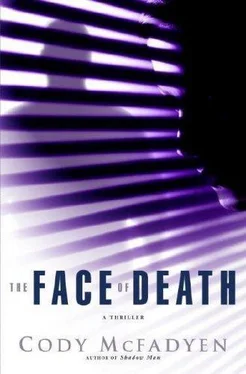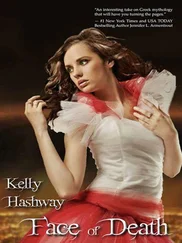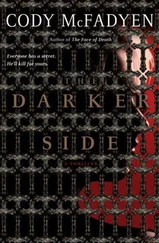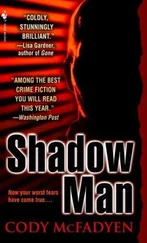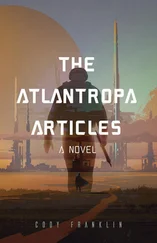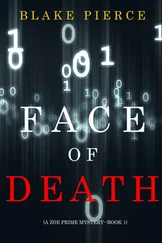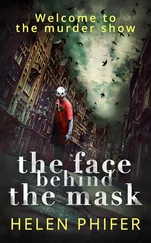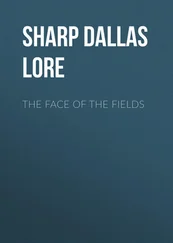I told them about a famous case in New Mexico. A man and his girlfriend had spent years hunting and capturing women. They would bring the abductees into a specially equipped room, filled with restraints and instruments of torture. They'd spend days and weeks raping and torturing their victims. They videotaped most of what they did. One of their favorite implements was a cattle prod.
"There is video," I'd said, "where you can see smoke pouring out of a young woman's vagina because they used a cattle prod to penetrate her."
Just this, this tiny bit of information, far from the worst available, silences the room and turns some of those young faces white.
"One of our agents, a woman, had the job of making a series of detailed drawings of all the whips and chains and saws and sex toys and other perversities that this couple had used on the women they'd brought into that room. She did her job. She spent four days doing it. I've seen the drawings and they were good. They were used in court, actually. Her superior praised her and told her to take a few days off. To go home, see her family, clear her head." I had paused, letting my eyes roam over all those young faces. "She went home and spent the day with her husband and her little girl. That night, while they were asleep, she crept downstairs, got her service pistol out of the gun safe, and shot herself in the head."
There had been a few gasps. There had been a lot of silence. I had shrugged. "It would be easy to take that strong young woman and classify her and not think anything more about it. We could call her weak, or say that she must have already been depressed, or decide that something else was going on in her life that no one knew about. And you're welcome to do that. All I can tell you is that she'd been an agent for eight years. She'd had a spotless record and had no history of mental illness." I'd shaken my head. "I think she looked too much, went out too far, and got lost. Like a boat on the ocean with the shore nowhere in sight. I think this agent found herself floating on that boat and couldn't figure out a way to get back." I had leaned forward on the podium. "And that's what I do, what my team does: We look. We look and we don't turn away, and we hope that we can deal with that."
The administrator running the program hadn't been all that happy with my talk. I hadn't cared. It was the truth. I wasn't mystified by the act of that female agent. It wasn't the seeing that was the problem, not really. The problem was the un-seeing and the stop seeing . You had to be able to go home and turn off the images that wanted to giggle through your mind, all sly feet and whispers. This agent hadn't been able to do that. She'd put a bullet in her head so she could. I empathized.
I guess that's what I was trying to tell those fresh-scrubbed faces: This isn't fun. It's not titillating, or challenging, or a roller-coaster scare.
It's something that must be done.
It's my gift, or my curse, to understand the desires of serial killers. To know why they feel the way they do. To feel them feeling it, just a little, or just a lot. It's something that happens inside me, something based in part on training and observation, based in greater part on a willingness to become intimate with them. They sing to themselves, a song only they can hear, and you have to listen the way they listen if you want to hear the tune. The tune's important; it dictates the dance. The most important component is thus the most unnatural act: I don't turn away. I lean in for a closer look. I sniff them to catch their scent. I touch them with the tip of my tongue to catch their flavor. It has helped me capture a number of evil men. It's also given me nightmares and moments where I wondered at my own hungers: Were they mine? Or had I just understood too much ?
"Barry is coming," I tell Alan. "It's his scene. It may not become ours, but let's proceed as if it's going to be. Callie, I want you to walk the scene with me. I need your forensic eyes. Alan, I want you to recanvass the neighborhood. Barry won't have a problem with that. Let's find out what the neighbors know."
"You got it," he replies, pulling out a small notepad from his inside jacket pocket. "Ned and I will dig in."
Alan has always called his notepad "Ned." He told me his original mentor said the notepad was a detective's best friend, and that a friend should have a name. He'd demanded that Alan come up with one, and thus Ned was born. The mentor was long gone, the name was forever. I think it's a form of superstition, Alan's version of a baseball player's lucky socks.
Callie squints at a black Buick that has just been let past the cordon lines. "Is that Barry?" she asks. I stand up, and recognize Barry's heavy, bespectacled face through the windshield. I feel a kind of relief run through me. Now I could do something.
"I'd give you a hard time about the date you pulled me away from,"
Barry says as we approach, "but you look like you're having a shitty night yourself."
Barry is in his early forties. He's heavy without being fat, he's bald, he wears glasses, and he has one of the more homely faces I've seen--the kind of homely that becomes cute in the right light. In spite of these handicaps, he's always dating pretty, younger women. Alan calls it the "Barry phenomenon." Supreme confidence, without being arrogant. He's funny, smart, and larger than life. Alan thinks a lot of women find that combination of self-assurance and a big heart irresistible. I think that's just a part of it. There's a hint of unyielding strength in Barry that rolls through all that amiability like thunder in the distance. He's seen it all, he knows that evil is a real thing. Barry is a hunter of men, and at some level, right or wrong, that's always going to be sexy in an animal-scent kind of way.
I know his grumbling is all for show; we've lost track of who really owes a favor to whom, and in truth, neither of us really cares.
"Anyway," he says, pulling out a notepad, his own Ned, ready now to get down to business. "What have you got for me?"
"Ritual slaughter. Evisceration. An ocean of blood. The usual,"
I say.
I fill him in on what I know. It isn't much, but it begins the backand-forth rapport that works so well for us. We'll walk the scene and talk as we go, bouncing observations off each other, honing our conclusions. It might seem aimless to an observer, but it's method, not madness.
"Three dead?" he asks.
"Three that I saw, and I'm pretty sure that's it. Patrol cleared the house, and they didn't mention any other bodies."
He nods, tapping his pen on the notepad. "You're sure the girl didn't do it?"
"No way," I say, emphatic. "She didn't have enough blood on her. You'll see what I mean when we go inside. It's . . . messy. I'm also fairly certain that one of them was killed downstairs and then carried into the bedroom. Carried, not dragged. She doesn't have the strength for that."
He looks toward the house, thinking. He shrugs. "Doesn't really play for me, anyway," he says. "The girl doing it. What you described sounds like advanced killing. Not to say that sixteen-year-olds aren't doing some bad things these days, but . . ." He shrugs again.
"I sent Alan off to interview the neighbors. I didn't think you'd mind."
"Nope. He's the man when it comes to that stuff."
"So when can we go in?" I ask.
I'm anxious now, reenergized. I want to start looking at this killer. He glances at his watch. "I expect the Crime Scene Unit here any minute--another favor you owe me. Then we can slip on our paper booties and get to work."
I start outside the house. Barry and Callie wait, patient, listening. I examine the front of the home. I look up and down the street, at the homes on either side. I try to imagine what it would have been like in the daytime.
Читать дальше
